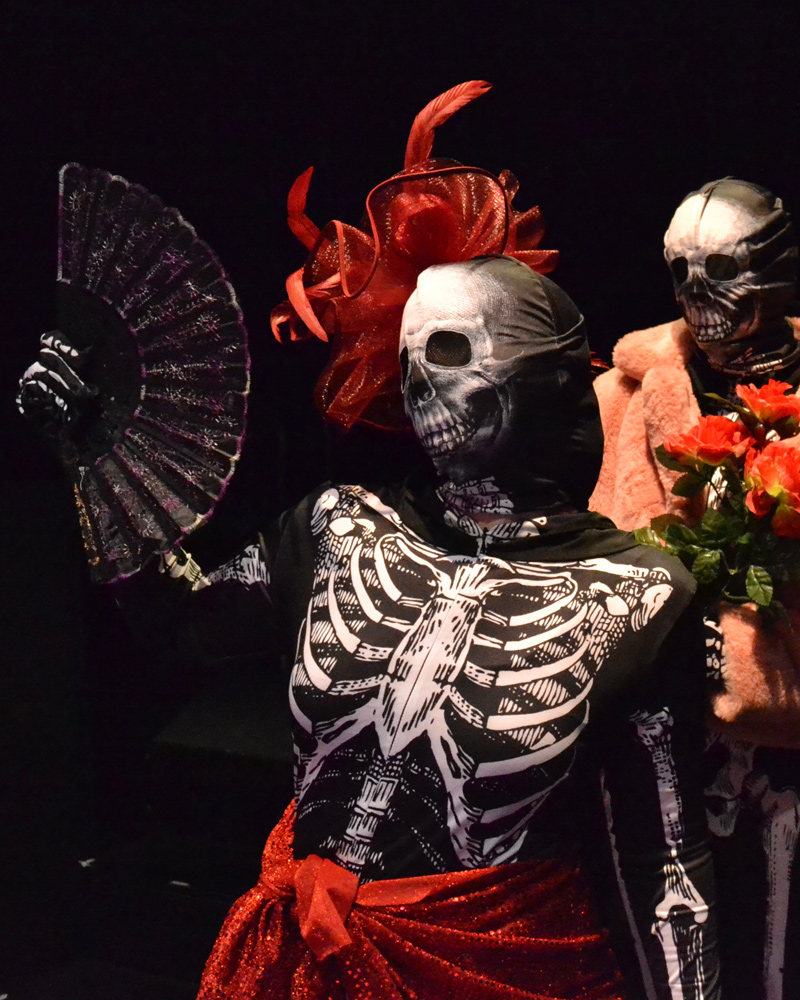
Everybody
by Brandon Jacobs-Jenkins
DIRECTOR
Kirsten Trump*
CHOREOGRAPHER
Philly Kang
PRODUCTION MANAGER/INTIMACY COACH
Kit Wilder*
PRODUCTION STAGE MANAGER
Lauren Cox
*indicates a member of SU faculty
Special Thanks
Sky Caddell, Richard Eric Stone, John Bonanni, Scott Hudson, Aubrey Deeker-Hernandez, Jenny Ravitz, Jennifer Flitton Adams, Cheryl Yancey, Laura Whittenton, Andrew Carson, Fern Middleton, Dave Steinmetz, Matthew Hapeman, Clark Van Beek, Jessica Hightower, Elizabeth Albert, Antonio Gutierrez, Andriana Dickinson, Matt Niess, Keith Glover
Any photography, video and/or audio recording of this production is strictly prohibited.
April 24–27, 2025
Glaize Studio Theatre
Shenandoah Conservatory
This production contains mature language and content, including themes and/or depictions of death, discrimination, incest, partial nudity and sex, as well as drugs, alcohol and substance abuse. It also includes the use of theatrical haze, fog and a black light. Please be aware that our actors make full use of the space, including the aisles and other audience spaces. Contact the Box Office or speak with an usher for more information.
When you join the Shenandoah Conservatory Dean’s Circle, your annual member support helps Shenandoah Conservatory address the costs of excellence in performing arts training, equipping state-of-the-art facilities, hiring world-class faculty, and fostering experimental and creative student projects.
Join Now >
Shenandoah Conservatory is grateful to the Dean's Circle for supporting our creative community of artists, scholars and educators.
Meet the Dean's Circle >
To learn more about joining the Dean’s Circle and the other ways you can make a transformative gift to Shenandoah Conservatory visit www.su.edu/performs/support or contact:
Shenandoah University Office of Advancement
give@su.edu | (540) 665-4512
Shenandoah University is a 501(c)(3) nonprofit organization. All gifts are tax-deductible to the full extent of the law.
As a Friend of the Conservatory, you designate your support for a specific academic department, student ensemble, high profile guest artist or special initiative. Your gift demonstrates your appreciation for the important role the arts play in our lives and our community.
Join Now >
Shenandoah Conservatory is grateful to the Friends of the Conservatory for supporting our creative community of artists, scholars and educators.
Meet the Friends of the Conservatory >
Contact Shenandoah University's Office of Advancement at (540) 665-4512 or give@su.edu for more information or other ways to give.
Shenandoah University is a 501(c)(3) nonprofit organization. All gifts are tax deductible to the full extent of the law.
